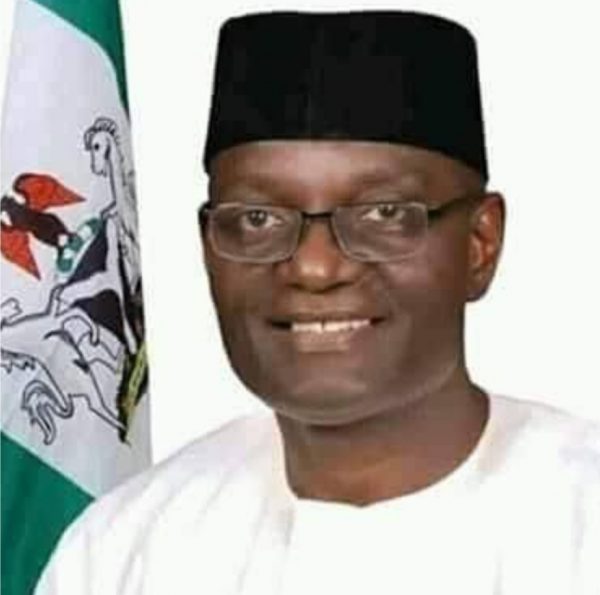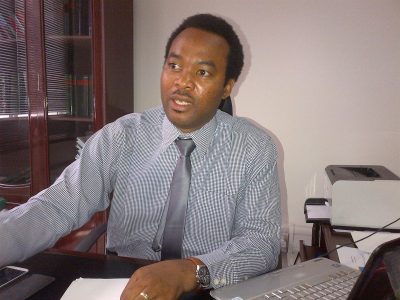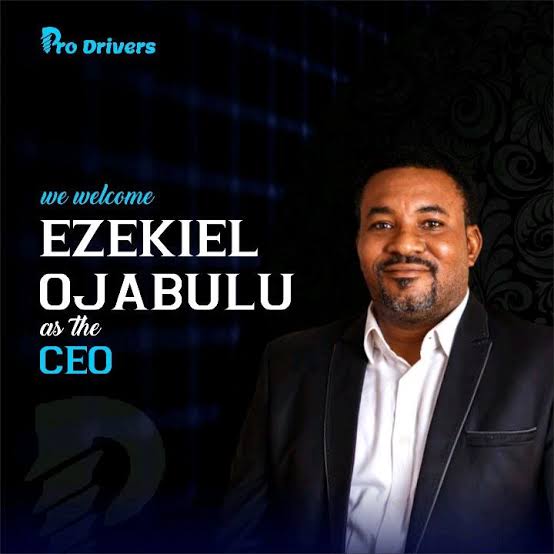Blue Economy Initiative Needs Legal Framework, Policy Direction – Hassan Bello

Since his exit from the Nigerian Shippers’ Council(NSC) as the Executive Secretary and Chief Executive Officer(CEO) three years ago, Mr Hassan Bello,a Lawyer has dusted his silk and back to chambers. He runs a thriving law firm in Abuja with a growing clientele base. In this interview with MMS Plus, he shares thoughts on the African Continental Free Trade Agreement(AfCFTA) and why Nigeria may not benefit from its huge potentials; he says the blue economy is a brown-field area but needs legal framework and policy direction.
The terminal charges generated some controversies lately. It did appear that there were some kind of mistake on the part of the Nigerian Shippers’ Council, for possibly going against what the court ruled on the issue of suspending increase in terminal charges, maybe they tried to look at human element and also the business side of it to do what they did. What’s your take on that?
I think the Council was been dynamic because things cannot be static especially tariff. Tariff ought to be reviewed and for a long time we know that there has not been any review of tariff. The decision of the court of appeal is applicable to certain period of time and usually when you have a review of the tariff, it is there in the agreement signed many years ago between the Council and the service providers. The service providers will issue a notice to the Council stating that they want a review, now this review could be up or down. If the review is up, the council will have consultation with the stakeholders because the council is nothing but a stakeholder.
Every regulator must out of necessity establish connections with stakeholders, in the course of the meeting to know their opinion, the governing body will take the decision to the supervising ministry and then to the presidency because changes in tariff could affect the whole economy. So I think this is what should be done and I think it is good that terminals approach shippers council, that is one good thing and this shows a sense of belonging and to be honest there should be a review of this tariff but what we are saying is that we should also see a downward review sometimes, that’s what we have against such charges.
When you have charges over condition and the condition is not permanent, when this condition ceases, the charges should also go. Looking at the Cooking gas, it has a pendulum which goes up and come down. And that’s an industry that understands competition, that’s the key. I have hammered on this issue a couple of times, maybe, people don’t see it the way I see. We have to institute a competitive regime in the provision of services. I always make example with communication, when we have competition, services will be appropriately priced and it trickles down to the economy but once we have a kind pseudo- monopoly then that is dangerous.
The court judgement talked about paying ₦3 trillion on the part of the multi-national shipping companies, have they been able to negotiate or pay anything at all?
I think it’s being negotiated, the process is on.
Let’s look at the blue economy, everyone seems to be so fascinated about the prospect of the blue economy but these things have been there. We are not looking at the capacity building aspects of it which is my concern, the infrastructure we should put in place as a nation, is there any amount of money set aside to work on this because it’s multi-sectoral and we haven’t had any plan for the ministry yet, even the aspect of digital intelligence being involved in it. What is your take?
All has to do with the economy, the focus now is on the economy, you can’t have the ministry of transport without putting the economy into consideration.
Many years ago, everything was done in abstract because we had earnings from oil and it was comfortable, now the economy is the focus that’s why we have ministry of communication, innovation and digital economy and if you look at that sector, it’s a perfect example of what could be done because it contributes about 9% of the total GDP, it has created employment, it has created penetration of telephony and it has serious impact on other sectors of the economy. I’m very proud of the communication ministry and the regulators, but why? Because it set up on a lucid platform with adequate legal institutional framework.
Now as I said, the ministry of blue economy and marine is not a green-field but a brown-field, there are many actors there, they have been there. When you look at the environment, they have been there, fisheries, they are there, agriculture and many other aspects, they are there, that’s why when this was created we said we need clarity, what is it that is supposed to be done and then we need a legal framework and it will be guided either with changes in their ministry under the blue economy or the nomenclature should be guided with policy clarity.
That’s important or otherwise we may have to witness some clashes because as I said, most of these sectors are already there. It’s a good thing that we have the blue economy and like many other things in the industry, we say we have 80,000 coastlines, we have this,we have that, what have we done with them?
So I will advice that policy and legal framework be used to guide this cause, just like the communication sector and if we do that, then I am sure the blue economy will be harnessed and that includes many things which the ministry should concentrate on, contribution to GDP, security, national freight very important, modern ports and not water front, ports that will have impact on the economy, ports that will have relationship with the hinterlands not those abstract ports, ports must give some latitude, to influence certain or bring about certain economic benefits like the Lekki deep seaport.
Immediately we said we were going to have the Lekki deep seaport, our competitors were shaking because that’s a statement of intent by Nigeria. So whatever the Ministry of Marine and Blue Economy does, there’s need for guidance that means a lot of stakeholders input.
I spoke with Segun Awolowo about the African Continental Free Trade Agreement and I told him we cannot have two trade instruments working at the same time. We have ETLS and now AfCFTA and they are called free trade schemes. But he has just told me that they will take away ETLS but the question remains what about the barriers, do we have confidence in this, because since 1979 ETLS has been there, no review has been done whether it’s being working or not. What’s your take on this?
The trade among African nations should be the concentration , that’s the AfCFTA. ECOWAS has done a little and regional economic growth has to give way to the continental and it makes sense to me given that the continent will come together and create a big market, billions of dollars market. 14% of intra- African trade is too small but with AfCFTA, we hope that there will be a mobilization of capital, international trade and removal of physical barriers, especially the role of customs. When we have AfCFTA we will see that the role of customs will dwindle because they won’t be able to collect duty. It’s a one market hub, that’s what is happening in Europe but it’s important for Nigeria to get itself ready. It’s like a world cup and three countries are bidding for the hosting right, there will be inspection, what about your stadia, roads, hotels, etc and based on their satisfaction you will benefit from. Nigeria may not benefit from AfCFTA, no matter how big it is if they don’t do these three things: Investment in infrastructure, we have to have not only the physical infrastructure like ports, roads, rail but processes and procedures of international standards, talking about port community system and the Nigerian Ports Authority, NPA is doing that now which is very good, the national single window, the cargo truck routes and other instruments that will make our ports of standard. It should be technologically driven, should be a digital port, a non- contact port, a smart port. Then the second is the connection, what is happening in Kano? Kano is the centre of commerce especially agriculture and it is important that we look at this issues and upgrade our infrastructure, our processes and do everything possible to be at an advantage position, considering our population because it’s is going to be a big market. What are we doing about dumping? What are we doing about check points from Cotonou to Nigeria? What do we do about the inland roads and so on? So government must be conscious, deliberate, sit down and make transportation a special area of attention, that’s what they did to communication, why is the transport sector not getting enough attention from the government? Is it because transportation is derived demand?
No, it is not, transportation makes a nation and if you are looking for diversification of sources of revenue for your economy there is no better place than international trade, you export, you have this foreign exchange, you create a value chain, everywhere you go, you will see that things are moving. You can ask, with all the mineral resources we have in Africa, just 2% contribution to the world trade, what a meagre amount because there’s no infrastructure, there’s no link, not even a sea link to Ethiopia. If Ethiopia wants Nigerian onions, you have to take it to Spain, and from there you take it to Morocco and the Ethiopia. Why is there no direct link from Nigeria to Morocco or Ethiopia and that’s why the national fleet is an instrument of liberation and freedom. We have to concentrate, if we don’t own ships, then we are not a maritime nation. We pay about $7 billion per annum in freight, why wouldn’t we own our ships? We export our crude free on board (FOB) which mean it is the buyer overseas who nominates his ship to come and take it, no one does this anywhere in the world except Nigeria. So there are policies, laws and even the port reforms we did were abandoned, all we did was transfer it from government to private sector but what of the institutional changes, what of the legal framework? Everything that ought to be done has not been done and we don’t have this continuity of processes and policies, that’s what is killing us, that’s what is happening in the transport sector and that’s what the Ministry of Marine and Blue Economy and maritime should sit down and in three months, consult the stakeholders and get the whole idea, so they can come out with clarity.







